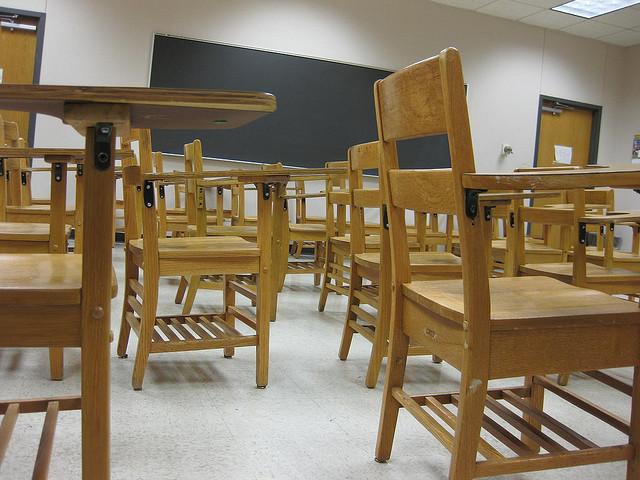The University of Wisconsin System released the results of the “UW System Student Views on Freedom of Speech” Feb. 1, which was sent out at the end of 2022 to more than 83,000 UW System students, according to University of Wisconsin-Madison news.
More than 75% of respondents said their instructors create a classroom environment where students with controversial views would feel comfortable expressing them, UW-Madison news said.
These results were largely consistent with those of UW-Madison’s 2021 “Campus Climate Survey,” though the UW System survey showed higher levels of hesitancy to share unpopular opinions by politically conservative students, UW-Madison Director of Media Relations Kelly Tyrrell said.
According to UW-Madison law professor and member of the UW Survey Center advisory board Franciska Coleman, the results from the survey were generally what the board had anticipated.
“I think the results were probably pretty much as everyone expected, that … professors are not indoctrinating students,” Coleman said. “[but] students have become more hesitant to disagree with each other just because … they’re really not sure … that their disagreement will be taken in a generous spirit.”
But increasing tensions between the political left and political right hasn’t been limited to college campuses, according to a 2022 PEW research study. Since 1994, negative views of the opposite party have risen for both democrats and republicans by more than 30%.
The survey’s release was delayed last year, in part due to the April 2022 resignation of UW-Whitewater’s interim chancellor, who cited the pending release of the survey as his reason for stepping down, according to an article from The Badger Herald.
UW-Stout’s Menard Center for the Study of Institutions and Innovation, which funded the survey, received substantial donations from GOP organizations, the article said. Prior to the survey’s release in 2022, it included questions meant to determine students’ understanding of the First Amendment.
According to UW-Madison American politics professor Howard Schweber, a 2021 survey from the Tommy G. Thompson Center on Public Leadership also attempted to gauge student understanding of the First Amendment.
The survey asked whether citizens had the right to disregard laws that conflict with their religious beliefs and labeled students who answered “no” as not understanding the First Amendment, though the answer is very complex, Schweber said.
“There is no set of simple answers under the First Amendment,” Schweber said. “It’s a very complicated intellectual exercise. And that’s one of the reasons I find these surveys troubling.”
Coleman said while providing feedback to the creators of the survey prior to its release, she suggested separating student’s thoughts on offensive speech and speech that is actually injurious to society, though this was only partially incorporated by the survey’s creators.
“They didn’t … fully embrace that dynamic, but they did make some changes where they did ask students about injurious speech,” Coleman said. “I think that’s going to produce different results than if you just ask students about speech.”
Though it isn’t known for sure whether students with controversial opinions are retaliated against in the way they fear, the reported apprehension to express unpopular views in class is noteworthy, Coleman included later in an email statement to The Badger Herald.
But though public universities — like UW System schools — are required to be neutral when regulating speech, feeling comfortable expressing controversial opinions is not necessarily a guarantee, Schweber said.
“The fact that you have a right to say something does not mean you have a right to feel welcome saying it,” Schweber said.
Though a university instructor is technically allowed to disagree or even argue with a student during class and thus create a hostile environment, this would be considered a bad teaching practice and would likely be subject to disciplinary action, Schweber said.
UW-Madison Chancellor Jennifer Mnookin told UW-Madison news a primary goal of the university is to challenge the way students think and that it is vital for students from all backgrounds and opinions to have the opportunity to benefit from discourse in the classroom.
Following the release of the results, the UW System has implemented a version of UW-Madison’s “It’s Just Coffee” initiative, which invites students with different backgrounds to share their thoughts over coffee, UW-Madison news said.
Faculty and instructors are also given the opportunity to learn how to create a classroom environment conducive to the expression of diverse opinions through the UW-Madison professional development series titled “The Discussion Project,” which was launched in 2017 according to the program’s website.
Though UW-Madison hasn’t launched any new initiatives in response to the release of the data, it still provides valuable insight into the university’s climate, Tyrrell said.
“UW Madison … could play a role in informing future efforts [to promote self expression on college campuses],” Tyrrell said. “And regardless of what comes, I think the data is interesting and useful.”



